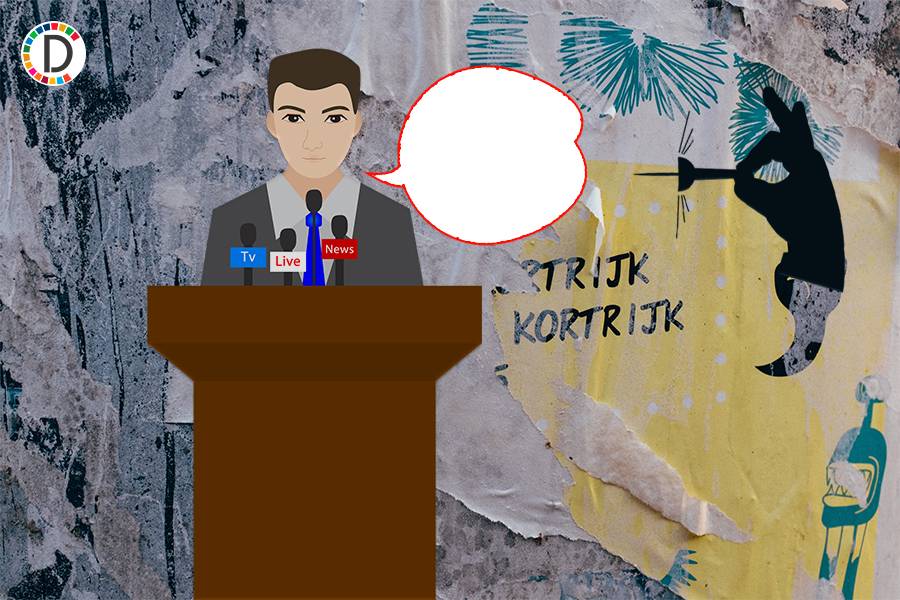Ugandan opposition says troops raid its offices amid election challenge
The leader of Uganda's main opposition party, Bobi Wine, said troops raided its headquarters on Monday as staff tried to prepare a legal challenge to President Yoweri Museveni's declared victory in an election last week. Wine's lawyers were planning to go his home on Monday, Ssenyonyi said, to discuss his house arrest and take instructions on the court petition against the results of the elections.

- Country:
- Uganda
The leader of Uganda's main opposition party, Bobi Wine, said troops raided its headquarters on Monday as staff tried to prepare a legal challenge to President Yoweri Museveni's declared victory in an election last week. Wine, who is himself under house arrest, said party leaders were now on the run.
"Our party office has been raided by the military and been cordoned off," Wine told Reuters. "Everybody is being pursued." Police spokesman Patrick Onyango said the National Unity Platform (NUP) office had been cordoned off for security reasons, but he gave no more details and did not say if the troops had actually entered the premises.
The electoral commission declared the incumbent Museveni the winner of the Jan. 14. election on Saturday, triggering protests in two areas. Former popstar-turned-legislator Wine of the NUP came second and accused his rival of winning by fraud. Wine, real name Robert Kyagulanyi, appealed to the youth to vote out Museveni, a 76-year-old who has held power since 1986. Wine's songs have frequently criticised Museveni for corruption and nepotism, charges he denies.
Museveni, one of Africa's longest-ruling leaders, has dismissed the allegations of fraud and said the election may turn out to be the "most cheating free" in Uganda's history. Soldiers surrounded the NUP compound in the Kampala suburb of Kamwokya and were not letting its workers through, party spokesman Joel Ssenyonyi said separately.
"They don't want work to continue at our offices because they know that we are putting together evidence to show the world how much of a fraudster Museveni is," he said. The campaign and election were marked by a deadly crackdown by security forces on opposition supporters and an internet shutdown. In one week of protests in November, at least 54 people died.
The government said opposition members and their supporters had been breaking public order laws and COVID-19 restrictions on gatherings. SCUFFLE
Wine called for the military to release him from house arrest, saying his home "is not a gazzetted detention center". He needed to meet with his party to decide on a strategy that could include peaceful protests, he said. He hoped to connect to the internet so that he could have a meeting via Zoom.
One legislator for Wine's party was beaten up by security forces, Ssenyonyi said at the weekend. A military spokeswoman said the lawmaker, Francis Zaake, refused to follow orders and had tried to enter Wine's home.
"In the scuffle, he got hurt," Brigadier Flavia Byekwaso told a news conference. The NUP's Ssenyonyi said such attacks, including on the party's polling agents, were being carried out by security offices to cripple the court challenge.
At least 110 polling agents of the party have been arrested since the eve of the election. The military's Byekwaso said the government was not targeting the party's agents and that those arrested were planning "chaos".
Some 223 suspects have been arrested during the election on offences that include assault, intimidation and voter bribery, police said. Wine's lawyers were planning to go his home on Monday, Ssenyonyi said, to discuss his house arrest and take instructions on the court petition against the results of the elections. The lawyers said they were not granted access.
The law gives petitioners 20 days after results are declared to challenge them in the Supreme Court. The military has surrounded Wine's home in Kampala since Thursday, saying it was assessing potential threats and for his own safety.
On Monday, the government started to partially restore internet access, which had been fully blocked during the vote. The United States and Britain on Saturday called for investigations into reports of fraud and other election issues.
(This story has not been edited by Devdiscourse staff and is auto-generated from a syndicated feed.)
ALSO READ
Brazil Supreme Court justice investigating Elon Musk over fake news and alleged obstruction
Unrest over control of Matua matriarch's house in Bengal
FireHouse frontman C.J. Snare passes away
Drug peddler's house seized in J-K's Samba
Brazil Supreme Court strikes down military intervention thesis in symbolic vote for democracy










